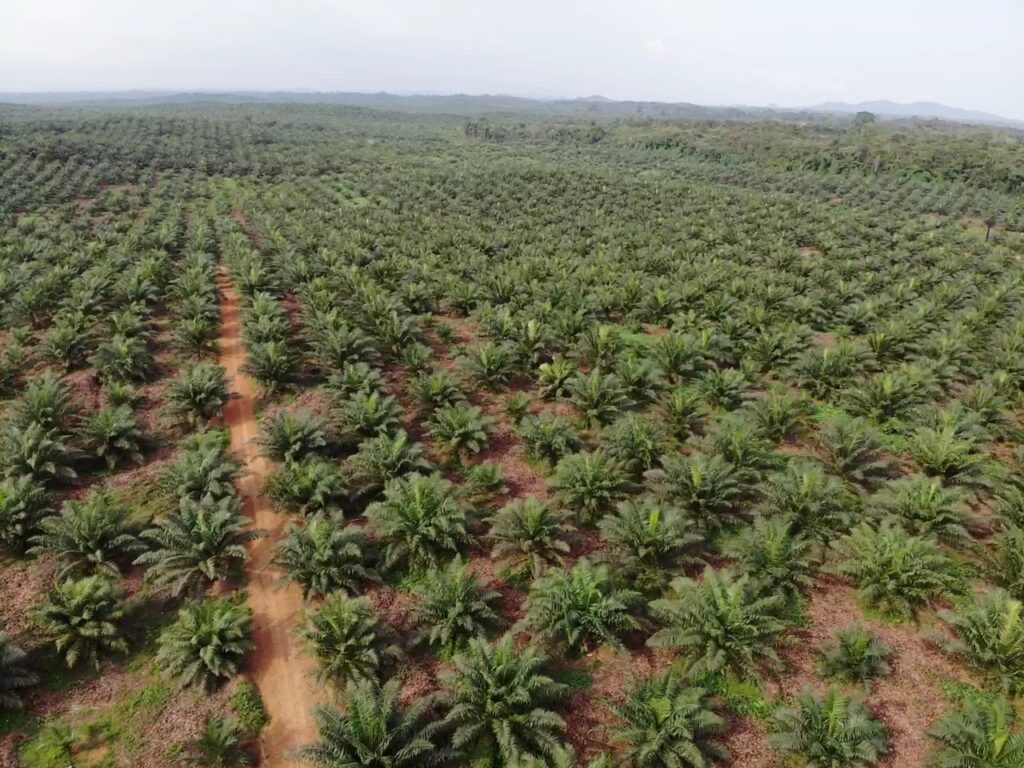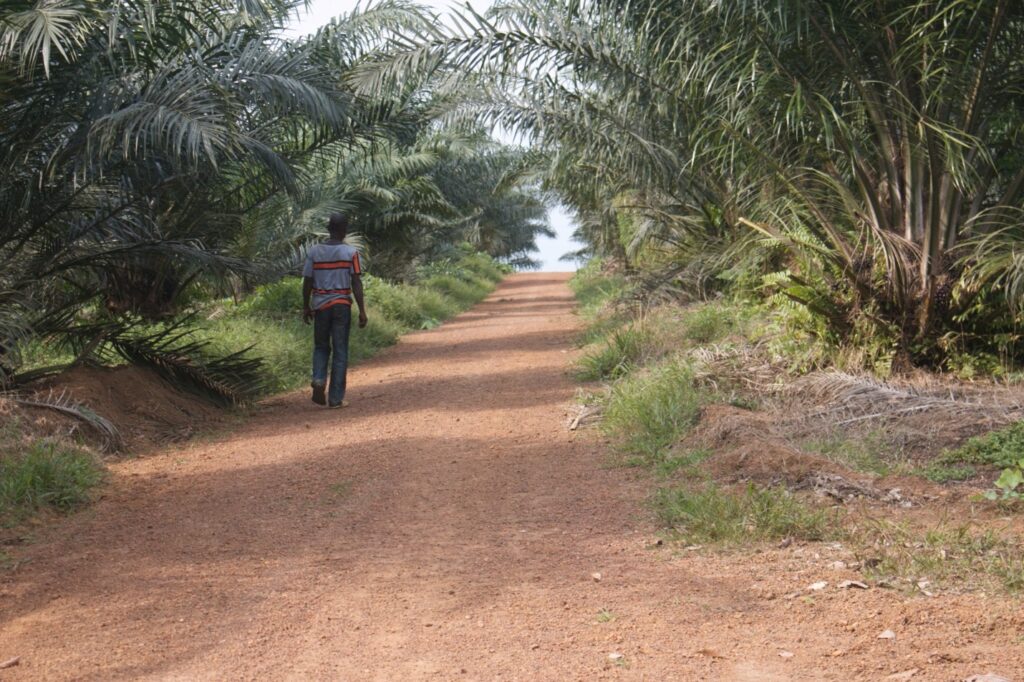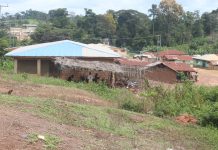Banner Image: Farmers in Jogbahn Clan, Grand Bassa County, discuss their dispute with Equatorial Palm Oil over a 2016 crops compensation deal. The DayLight/James Harding Giahyue
By Emmanuel Sherman
JOGBAHN CLAN, Grand Bassa – In 2013, Sime Darby paid Boima Sandemani, a fairly looking middle-aged farmer in Zodua, Grand Cape Mount County, US$3,735 for his 83 rubber trees. The Malaysian company had signed a memorandum of understanding with the community to expand on their land.
Three years later and over a hundred miles away in Jogbahn Clan, Grand Bassa, Equatorial Palm Oil (EPO) reached a similar agreement with farmers there. Rufus Giaque, a man roughly the same age as Sandemani, received US$1,688.81 for his 175 rubber trees, 1,024 sugar canes and 101 banana shrubs. EPO had reached an agreement with the farmers to expand its plantation on their farmland.
Though Giaque had more crops on his farm, it turned out Sandemani received more money than him. The Cape Mount farmer was paid US$45 for each of his rubber trees, while Giaque was paid just US$6 for his, US$.054 for his sugarcane sticks and US$0.85 for his banana shrubs. In fact, Zodua received US$1.34 million, while Jogbahn got only US$244,597.
The reason for the drastic disparity was largely because in 2014—during the height of the Ebola epidemic—the Ministry of Agriculture reduced the prices for crops compensation. A mature rubber tree was reduced from US$97.92 to US$6. A stick of developed sugarcane was reduced from US$0.54 a stick to US$6 for an acre. A banana tree was reduced from US$1.69 to US$3 for several shrubs. The ministry said at the time that the reduction was meant to help develop the country. “This action has been taken in furtherance of the Agenda for Transformation for the effective development of the agriculture sector with reference to the Millennium Development Goals and pushing the post-2015 development agenda,” the ministry said in a public notice released on June 6, 2014.
But that reduction is the crust of a conflict between Giaque and other farmers in Jogbahn Clan, and EPO. The farmers allege they were tricked and harassed into accepting the new prices for the compensation of their crops. They say EPO negotiated with them for the compensation based on the old prices but paid them the new ones.
“That was the motivational force that made us to agree,” says G. Hillary Gbah, one of the farmers. “I was happy because I had about 4,006 trees. I did my calculation it was nearly $400,000 that was something that could make my life suitable. So I agreed.” Gbah received $20,000.
EPO and the Grand Bassa office of the Ministry of Agriculture, which coordinated the compensation deal, deny cheating or harassing the District Number Four farmers.

“That’s false and misleading,” says Joyce Kolvah, the Grand Bassa agriculture coordinator in an interview with The DayLight. “I think that day they wanted the money.”
“It is not true,” says Jasvinder Singh, EPO’s compliance manager, dismissing the farmers’ accusation. “They all agreed with the new prices.
“As far as the company is concerned, we don’t owe anything.”
The farmers are threatening to lodge a complaint with the Roundtable on Sustainable Palm Oil (RSPO), the global watchdog for the oil palm industry. They are demanding EPO pays them retroactively at the old prices for crop compensation.
If that complaint is lodged, it will be the second time the RSPO to look into a matter involving Jogbahn Clan and the EPO. The community first filed a land-grab complaint with the RSPO in 2016 over EPO’s replanting exercise in 2014 but the global oil palm certification scheme cleared it of the accusation. Gmenee, Kampala, Wesseh Village, Paye Town and Morb Town—where Giaque and the other farmers come from—were not part of the 2016 RSPO complaint. Unlike their neighbors, they welcomed EPO to acquire their land, making way for the eventually controversial payments.
EPO is a member of the RSPO through its majority shareholder (62.86%), Kuala Lumpur Kepong Berhad (KLK), one of the world’s oldest and largest oil palm multinational corporations. RSPO rules mandate its members to adhere to key international laws and conventions applicable to the production of palm oil, such as the United Nations Guiding Principles on Business and Human Rights. That standard includes paying tenants and sharecroppers “adequate payments for crops,” which the farmers here allege did not happen.
James Otto, a campaigner with the Sustainable Development Institute (SDI), blames the ministry for the crisis. “The government should be raising the price of these crops commodities in the way to address the economic situation in our country…other than dropping the price,” says Otto. “By lowering the price, the government lowers its own standards.”
Ambulah Mamey, a Liberian agriculture development practitioner, based in the United States, agrees with Ott. “Any government that is concerned more about its people than astronomical profit motive of large corporations would use the fair value of the farmland to reasonably compensate land users, not to hugely discount the value of crops on their farms,” Mamey tells me.
The crisis, however, could be settled away from the RSPO. SDI is mediating between the farmers and the company for common ground.
“We have got a final MoU to be presented to the company (EPO) by the communities,” Otto tells The DayLight. “This will trigger the process of engagement and dialogues between the communities and the company.”

This report is a part of The DayLight Human Rights Reporting Series.





Facebook Comments